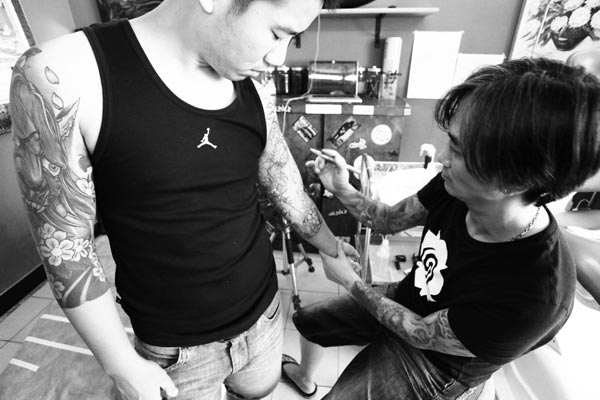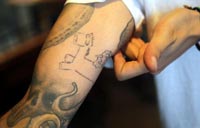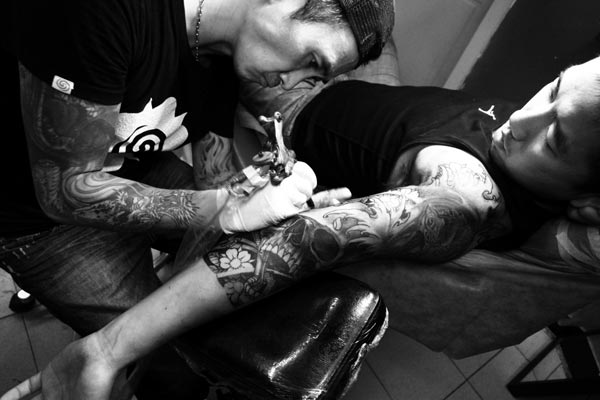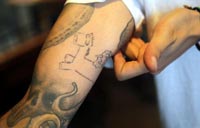Chinese rethink ink
 |
| Tattooist He Wenqian works at his studio. Provided to China Daily |
 |
| Tattoos' taboo past |
 |
| Marks of ethnic identity |
The 35-year-old ranks among the industry's pioneers. He now owns studios in Shanghai and Yunnan province's capital Kunming, and employs dozens of full-time artists.
Like most Chinese tattooists, He is self-taught. He developed an interest when inking doodles on willing friends at age 9.
"I was lucky enough to have buddies who let me experiment on their skin with sewing needles dipped in ink," he recalls.
"Then, in the early '90s, tattooed eyebrows became popular and I started using a machine."
That device wasn't a professional tattoo needle but rather a permanent makeup pen powered by an AC adapter.
"Things were slow when China's tattoo business became an industry at the end of the '90s," He recalls.
"Artists weren't experienced and had to teach themselves."
He opened his Beijing studio in 2002, after art school.
 |
| Tattooist He Wenqian works at his studio. Provided to China Daily |
 |
| Tattoos' taboo past |
 |
| Marks of ethnic identity |
The Internet has contributed greatly to tattoos' social accepibility. Studios like He's are active on China's social networks, such as Sina Weibo, Douban and Renren.
But the government hasn't yet acknowledged, let alone regulated, the industry, He says.
"Tattooists must rely on their own knowledge of hygiene and safety," He explains.
But authorities will likely develop laws as the sector grows with tattoos' popularity.
"Some youth still hide their tattoos from their parents and teachers," He says.
"But young people's minds will continue to open in pace with the economy."
Contact the writer at gantian@chinadaily.com.cn.
















